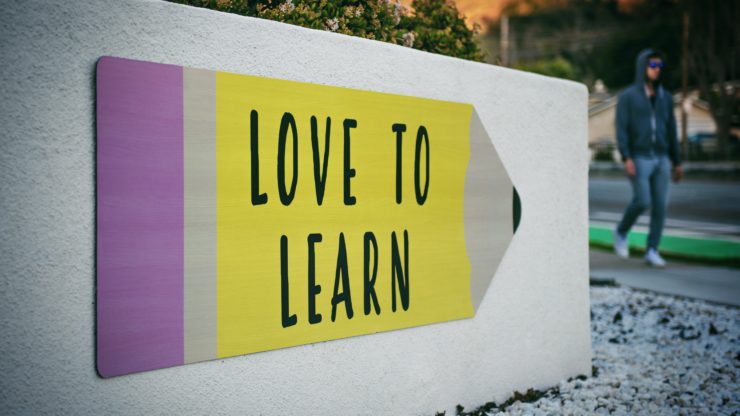Flourishing as an introvert can be a challenge for many. Introverts tend to have a more introspective personality and can find it difficult to navigate the social and professional world.
Fortunately, there are many strategies and tools available to help introverts cultivate self-confidence and learn to thrive in their environment.
This guide will provide a comprehensive look at how to develop personal growth and self-empowerment as an introvert.
Jump to Section
What is an Introvert?
An introvert is someone who prefers to spend time alone and gets drained by spending too much time in social situations.
They prefer to observe and think before speaking, and often find themselves in a state of deep contemplation.
They are typically more reserved, quiet, and reflective than extroverts. While introverts can still enjoy social situations, they often need to take breaks from it to recharge.
Understanding the Introvert’s Strengths
The most important thing to remember as an introvert is that there’s nothing wrong with being introverted. It’s simply a different way of being and it has its own set of strengths.
For example, introverts are often very creative and intuitive. They are also good at problem solving and can be effective communicators when they have the time and space to think and reflect.
Dealing with Social Anxiety
Social anxiety can be a major challenge for introverts.
The key to managing social anxiety is to create a plan and practice it.
This might involve taking deep breaths and engaging in positive self-talk. It could also involve setting boundaries and learning to say no to people when necessary.
Additionally, it’s important to remember to be kind to yourself and recognize that it’s ok to be an introvert.
Self-Care for the Introvert
Self-care is an essential part of personal growth for introverts. This can include activities such as meditation, journaling, and spending time in nature.
It’s also important to make time for hobbies and interests that are personally meaningful. This can help to bring balance and joy to life.
Finding Your Niche
Finding a niche is another way to flourish as an introvert. This could involve exploring different hobbies or interests and discovering what resonates with you.
It could also involve connecting with like-minded people and creating a community of support. This can help introverts to feel more secure and less isolated.
Exploring Your Creative Interests
Exploring creative interests is a great way to express yourself as an introvert. This could involve writing, painting, photography, or any other creative activity that resonates with you.
It’s also important to challenge yourself and find ways to push yourself outside of your comfort zone. This can help to expand your skills and build self-confidence.
Developing Self-Discipline
Self-discipline is an important part of personal growth for introverts. This involves setting goals and working towards them.
It could also involve creating routines and sticking to them. This can help to create a sense of structure and purpose in life.
Setting Goals and Working Towards Them
Setting goals and working towards them is essential for personal growth. This involves taking the time to identify what is important to you and what you want to achieve.
It also involves breaking down goals into smaller, manageable steps and taking action to move towards them. This can help to create a sense of accomplishment and progress.
Connecting with Others
Connecting with others is also important for introverts. This could involve joining a club or organization or attending social events.
It could also involve reaching out to mentors or people who share similar interests. This can help to build relationships and create a sense of community.
Building Resilience
Building resilience is a key part of personal growth for introverts.
This involves developing strategies to manage difficult emotions and thoughts.
It could also involve engaging in activities that promote mindfulness and self-compassion. This can help to create a sense of inner strength and stability.
Finding Your Voice
Finding your voice is another way to flourish as an introvert. This involves learning to express yourself authentically and confidently.
It could involve speaking up in a group setting or writing a blog or article. It could also involve creating art or music or any other form of expression that resonates with you.
Learning to Embrace Change
Learning to embrace change is essential for personal growth.
This involves recognizing that change is inevitable and learning to be comfortable with it.
It could involve developing strategies to manage uncertainty and learning to be flexible. This can help to create a sense of adaptability and resilience.
Finding Balance in Life
Finding balance in life is key for introverts. This involves taking the time to prioritize self-care and identify what is important in life.
It could also involve setting boundaries and learning to say no to things that don’t align with your values. This can help to create a sense of balance and nourishment.
Embracing Your Introversion: A Guide to Personal Development
Flourishing as an introvert requires understanding and accepting your own unique personality. It involves recognizing your strengths and weaknesses and learning to embrace them.
It also involves developing strategies to manage social anxiety and finding balance in life. With the right tools and resources, introverts can learn to be confident and empowered and find success in their own unique way.
FAQ
What Are the Benefits of Being an Introvert?
Being an introvert has many benefits. Introverts tend to be creative and intuitive, and can be good problem solvers.
They also tend to be reflective and thoughtful, and can be effective communicators when given the time and space to think.
How Can Introverts Connect with Others?
Introverts can connect with others by joining a club or organization, attending social events, or reaching out to mentors or people who share similar interests. This can help to build relationships and create a sense of community.
How Can Introverts Manage Social Anxiety?
Introverts can manage social anxiety by creating a plan and practicing it. This might involve taking deep breaths and engaging in positive self-talk.
It could also involve setting boundaries and learning to say no to people when necessary.
Additionally, it’s important to remember to be kind to yourself and recognize that it’s ok to be an introvert.

With a deep passion for personal development, Ben has dedicated his career to inspiring and guiding others on their journey towards self-improvement.
His love for learning and sharing knowledge about personal growth strategies, mindfulness, and goal-setting principles has led him to create My Virtual Life Coach.
Contact Ben at [email protected] for assistance.




